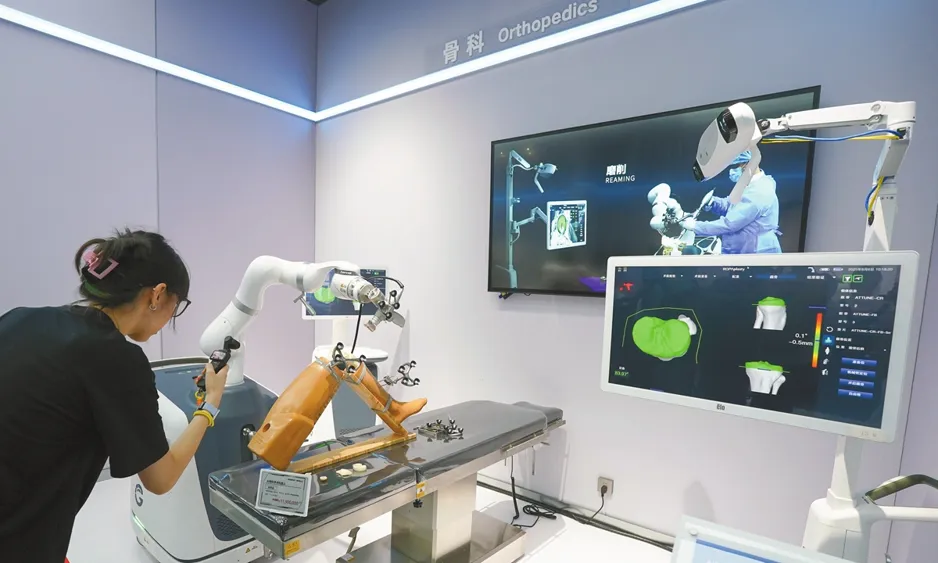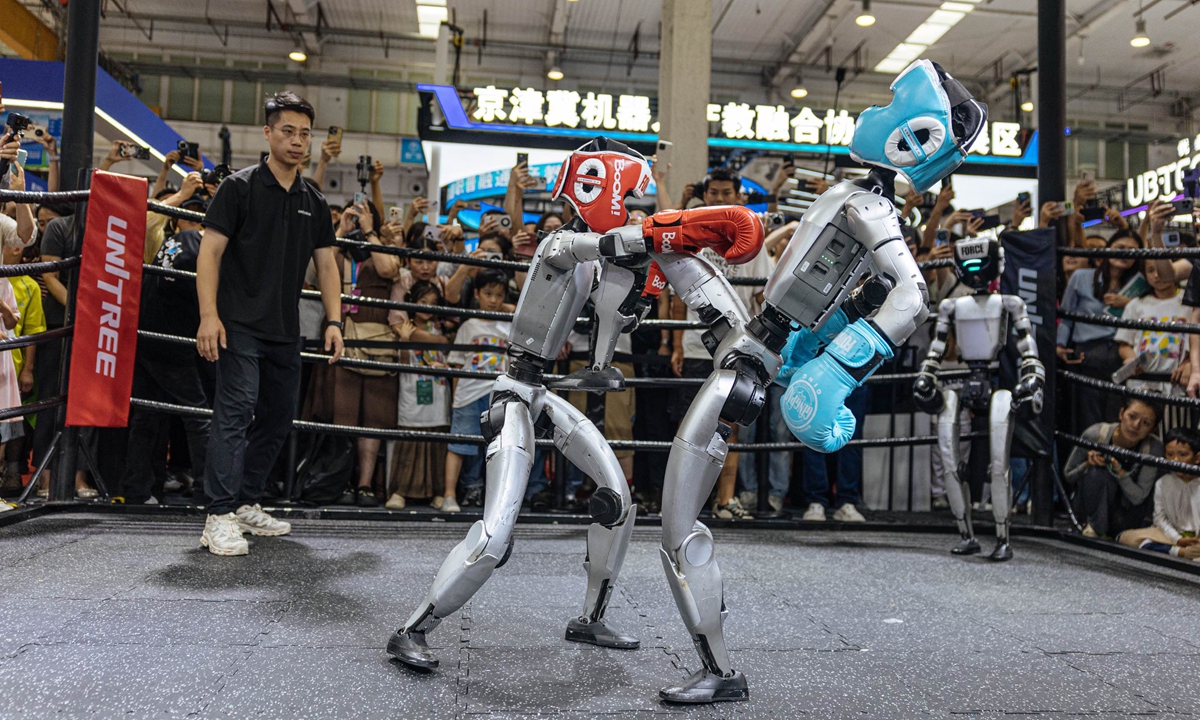Chinese Hospitals Embrace AI Transforming Health Care Fast

In a significant advancement for China's healthcare sector, United Imaging Intelligence has announced a partnership with Zhongshan Hospital to harness the power of artificial intelligence for improved diagnostics. This collaboration aims to integrate AI into clinical practices, enhancing the quality of patient care across the board.
Recent examples highlight the burgeoning role of AI technology in healthcare. One office worker in Beijing, Liu Liqin, experienced firsthand the capabilities of an AI health assistant on the Alipay platform, which analyzed her medical checkup report and alerted her to several abnormal indicators, recommending immediate medical attention.
Liu's experience underscores a broader trend in which AI is helping patients navigate the healthcare system with remarkable efficiency. After receiving the alert, Liu was guided by an AI-powered robot upon arriving at a major hospital, which assisted her in locating the correct department with ease.
This smooth transition from identifying health issues at home to receiving medical assistance in hospitals illustrates the growing integration of AI in patient care in China. As AI becomes an increasingly common feature in everyday healthcare, it is addressing long-standing disparities in healthcare resources.
According to Chen Jing, Vice President of the Technology and Strategy Research Institute, the infusion of generative AI into the healthcare sector is catalyzing rapid growth. He emphasized that AI is becoming essential in connecting hospitals, research institutions, pharmaceutical companies, and patients, thereby creating a more effective and personalized medical ecosystem.
Chen further remarked that while China's advancements in AI-driven healthcare are still nascent, significant progress is evident, particularly in medical imaging and intelligent triage, which are becoming commonplace in hospitals.
AI-based triage systems are proving particularly beneficial, directing patients to the right departments efficiently. Hospitals are also leveraging AI for registration and billing processes, significantly reducing waiting time and enhancing overall operational efficiency.
China's healthcare sector is witnessing these developments alongside government support and increased capital investment. Expectations are set for major pharmaceutical companies to achieve extensive digital and AI integration by 2030.
In addition to diagnostic advancements, specialized AI initiatives are emerging. Notably, a collaboration led by medical materials researcher Qian Hongyi is developing a screening system for adolescents with scoliosis, utilizing deep learning to expedite identification and referral for necessary treatments.
Across various applications, AI is not only transforming diagnostics but also is set to revolutionize rehabilitation processes, demonstrating that the integration of AI into medical workflows is both a possibility and a necessity for the future of healthcare in China.
Read These Next

US Claims Ukraine Used Drones to Strike Russian Drone Facility
On August 9, Ukraine used drones to strike a logistics hub in Tatarstan, Russia, causing an explosion and fire.

10th World Robot Conference Begins in Beijing
The 2025 World Robot Conference in Beijing showcases 1,500 products from 200 companies, marking a 25% rise in participation.

Typhoon Yangliu Intensifies Approaching East Taiwan Waters
Typhoon "Yangliu" intensifies near Taipei, moving west at 20-25 km/h; residents urged to prepare for heavy rain and strong winds.
